第14章
The afternoon was now drawing towards evening, but still there were no signs of the Impi. A wild hope struck us that they might have gone on about their business. Ever since Indaba-zimbi had heard that the regiment was supposed to belong to the Umtetwa tribe, he had, Inoticed, been plunged in deep thought. Presently he came to me and volunteered to go out and spy upon their movements. At first Hans Botha was against this idea, saying that he was a "verdomde swartzel"--an accursed black creature--and would betray us. I pointed out that there was nothing to betray. The Zulus must know where the waggons were, but it was important for us to gain information of their movements. So it was agreed that Indaba-zimbi should go. I told him this. He nodded his white lock, said "All right, Macumazahn," and started. I noticed with some surprise, however, that before he did so he went to the waggon and fetched his "mouti," or medicine, which, together with his other magical apparatus, he always carried in a skin bag. I asked him why he did this. He answered that it was to make himself invulnerable against the spears of the Zulus. I did not in the least believe his explanation, for in my heart I was sure that he meant to take the opportunity to make a bolt of it, leaving me to my fate. I did not, however, interfere to prevent this, for I had an affection for the old fellow, and sincerely hoped that he might escape the doom which overshadowed us.
So Indaba-zimbi sauntered off, and as I looked at his retreating form I thought I should never see it again. But I was mistaken, and little knew that he was risking his life, not for the Boers whom he hated one and all, but for me whom in his queer way he loved.
When he had gone we completed our preparations for defence, strengthening the waggons and the thorns beneath with earth and stones. Then at sunset we ate and drank as heartily as we could under the circumstances, and when we had done, Hans Botha, as head of the party, offered up prayer to God for our preservation. It was a touching sight to see the burly Dutchman, his hat off, his broad face lit up by the last rays of the setting sun, praying aloud in homely, simple language to Him who alone could save us from the spears of a cruel foe. I remember that the last sentence of his prayer was, "Almighty, if we must be killed, save the women and children and my little girl Tota from the accursed Zulus, and do not let us be tortured."I echoed the request very earnestly in my own heart, that I know, for in common with the others I was dreadfully afraid, and it must be admitted not without reason.
Then the darkness came on, and we took up our appointed places each with a rifle in his hands and peered out into the gloom in silence.
Occasionally one of the Boers would light his pipe with a brand from the smouldering fire, and the glow of it would shine for a few moments on his pale, anxious face.
Behind me one of the stout "fraus" lay upon the ground. Even the terror of our position could not keep her heavy eyes from their accustomed sleep, and she snored loudly. On the further side of her, just by the fire, lay little Tota, wrapped in a kaross. She was asleep also, her thumb in her mouth, and from time to time her father would come to look at her.
So the hours wore on while we waited for the Zulus. But from my intimate knowledge of the habits of natives I had little fear that they would attack us at night, though, had they done so, they could have compassed our destruction with but small loss to themselves. It is not the habit of this people, they like to fight in the light of day--at dawn for preference.
About eleven o'clock, just as I was nodding a little at my post, Iheard a low whistle outside the laager. Instantly I was wide awake, and all along the line I heard the clicking of locks as the Boers cocked their guns.
"Macumazahn," said a voice, the voice of Indaba-zimbi, "are you there?""Yes," I answered.
"Then hold a light so that I can see how to climb into the laager," he said.
"Yah! yah! hold a light," put in one of the Boers. "I don't trust that black schepsel of yours, Heer Quatermain; he may have some of his countrymen with him." Accordingly a lantern was produced and held towards the voice. There was Indaba-zimbi alone. We let him into the laager and asked him the news.
"This is the news, white men," he said. "I waited till dark, and creeping up to the place where the Zulus are encamped, hid myself behind a stone and listened. They are a great regiment of Umtetwas as Baas Botha yonder thought. They struck the spoor of the waggons three days ago and followed it. To-night they sleep upon their spears, to-morrow at daybreak they will attack the laager and kill everybody.
They are very bitter against the Boers, because of the battle at Blood River and the other fights, and that is why they followed the waggons instead of going straight north after Mosilikatze."A kind of groan went up from the group of listening Dutchmen.